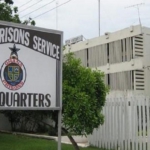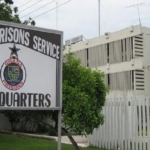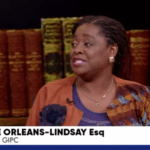
The government of Ghana, under President John Dramani Mahama, recently announced an approved increase in the daily feeding allowance for prisoners, raising it from the long-stagnant GH¢1.80 to GH¢5. This move, the first adjustment in 15 years, is a belated acknowledgment of a humanitarian crisis within the correctional system. Yet, the disclosure by the Director-General of the Ghana Prisons Service (GPS), Mrs. Patience Baffoe-Bonnie, that the approved funds are yet to be released, creates a dangerous disconnect between policy and reality. The Public Accounts Committee (PAC) sitting on Tuesday, September 30, 2025, served as a crucial platform, illuminating the profound security and legal implications of allowing angry adults behind bars to go unfed.
The Legal and Moral Failure of the GH¢1.80 Rate
For over a decade and a half, the nation’s prisons were mandated to provide three meals a day for each inmate on a mere GH¢1.80. This figure, set around 2010, was a devastating casualty of Ghana’s economic history and inflation. By 2025, the equivalent purchasing power of GH¢1.80 was negligible, barely enough to buy a single small sachet of water, let alone three square meals. The parliamentary condemnation of this rate was unanimous and bipartisan.
The inadequacy of the feeding grant constitutes more than a fiscal oversight; it is a direct violation of Ghana’s constitutional and international obligations. While the 1992 Constitution doesn’t explicitly guarantee the “Right to Food,” it mandates under Section 35 of the Prisons Act, 1972 (NRCD 46), that prison inmates have the right to decency and health. Furthermore, Ghana, as a signatory to the International Covenant on Economic, Social and Cultural Rights (ICESCR) and a custodian of the UN’s Minimum Standard Rules for the Treatment of Prisoners (Mandela Rules), has a non-negotiable duty to provide adequate food.
Members of the PAC were rightly outraged. Mr. Sebastian Fred Deh, a PAC member, highlighted the absurdity, noting that the state allocates GH¢2.50 per child per day for the school feeding programme. This illustrates how the nation was valuing the sustenance of an adult in custody at a fraction of that of a primary school pupil. The persistence of the GH¢1.80 rate under successive administrations—including both the current government and the previous New Patriotic Party (NPP) government—underscores a systemic failure of political will to prioritize prison welfare.
The Lived Reality of GH¢1.80
While politicians and administrators debate the fiscal implications, the true cost of the GH¢1.80 rate is borne by the inmates. The food provided, typically a meager corn porridge (kokoo) for breakfast and a small serving of watery rice or gari for lunch and dinner, offers little nutritional value. Former inmates frequently recount the conditions; as one ex-convict, Kwesi, stated publicly: “When they bring you the food, you eat it only to quiet your stomach, not to be full. It is so small, and often so bad, that the hunger never really leaves you.” This endemic malnutrition leads to severe health issues, weakens the morale essential for rehabilitation, and contributes directly to the volatility within the prison walls.
Inadequate Feeding Fuels Prison Unrest
The Director-General of the Ghana Prisons Service, Mrs. Patience Baffoe-Bonnie, unequivocally linked inadequate sustenance to the perpetual threat of internal disorder. Speaking to the PAC, she confirmed the presidential approval for the GH¢5 daily allowance but quickly injected a chilling dose of reality, stating: “Though the increments… have been approved, funds are yet to be released.”
Mrs. Baffoe-Bonnie was emphatic that this delay puts human lives at risk, stressing that “poor feeding remains a major cause of unrest in Ghana’s prisons.” She added a poignant, human element to the crisis, noting that in the event of any riots, “the poor prison officer becomes the first point of attack before any intervention.” This powerful statement makes the plight of correctional officers—mostly Ghanaian men and women who are themselves underpaid state employees—a central security concern. The welfare of the inmate is intrinsically tied to the safety of the officer and, ultimately, the stability of the institution.
The Waiting Game — Presidential Approval Versus Budgetary Release
The political commitment to reform was articulated by the Minister for the Interior, Muntaka Mohammed-Mubarak, who stated the new GH¢5 rate would be officially captured in the 2026 Budget. While this is a clear government plan, the gap between the September 2025 announcement and the 2026 fiscal year is a window of vulnerability.
Critically, while President Mahama approved the GH¢5 rate and reportedly instructed the release of GH¢10 million to cover the last quarter of 2025, the GPS has not yet received the funds. This delay is the crux of the problem, frustrating the pragmatic efforts of the correctional administration. The DG revealed that authorities had initially proposed GH¢10 per inmate daily, a figure the GH¢5 falls significantly short of, compelling the Service to continue relying on their own agricultural ingenuity.
The political opposition and civil society groups remain skeptical of promises without immediate action. This delay feeds into a broader national narrative in Ghana where policy pronouncements often stall due to Treasury constraints or bureaucratic inertia, making the announcement feel like a political rather than a practical commitment.
Beyond the Gates: A Call for Shared National Responsibility
The plight of the prisoner feeding fee resonates deeply with the Ghanaian concept of collective responsibility, or ubuntu. For many Ghanaians, the fact that an incarcerated adult receives just GH¢1.80 per day is a moral blot on the nation’s conscience, prompting a huge reliance on charity.
The moral outrage is often voiced by ordinary citizens on social media and radio phone-ins. As one Ghanaian often laments, “How can a whole adult eat three times a day on so little? It means we, the citizens, are the ones truly feeding them, not the state.”
Mrs. Baffoe-Bonnie’s ultimate appeal served as a call to the entire Ghanaian society to re-examine its approach to justice: “If we want to have serious public safety in this country, we have to prioritise the needs of prisoners. Because they’re part of us, they will be with us, and we don’t know who will be our next guest.” This final, stark warning transforms the feeding fee debate from a mere budgetary line item into an urgent matter of public health, security, and national character. The increase to GH¢5 is a foundation, but for Ghana to avoid further crises, the approved funds must flow immediately, moving the nation from aspirational politics to accountable governance.
- President Commissions 36.5 Million Dollars Hospital In The Tain District
- You Will Not Go Free For Killing An Hard Working MP – Akufo-Addo To MP’s Killer
- I Will Lead You To Victory – Ato Forson Assures NDC Supporters
Visit Our Social Media for More




